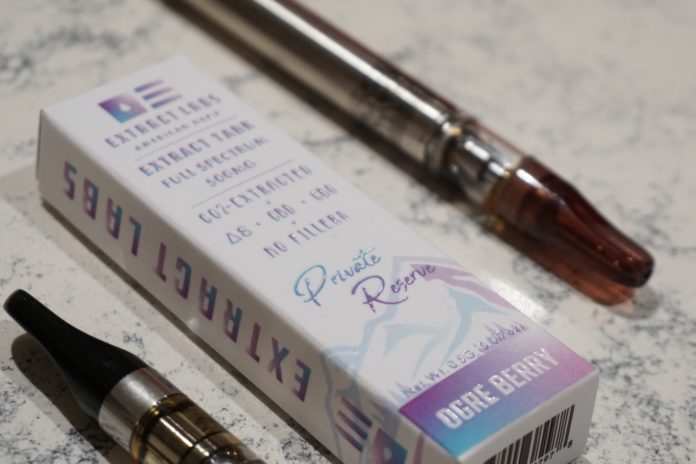
By Matt Kyle | Staff Writer
On Oct. 15, the Texas Department of State Health Services published a notice on its website classifying delta-8 THC — a cannabis extract — as a Schedule I controlled substance. Delta-8 is a compound similar to delta-9 THC, which is the chemical in marijuana that produces a psychoactive effect. Delta-8 products were popular because users said it could produce the psychoactive effect of marijuana.
Delta-8 had been sold in CBD stores in Texas following the passage of the 2018 Farm Bill and House Bill 1325 in 2019 — laws that legalized hemp growing and the sale of hemp products containing less than 0.3% delta-9 THC. Since delta-8 products contain less than 0.3% delta-9 THC, it was believed by retailers to be legal to sell. However, following the notice, it has officially been labeled illegal, and the DSHS said delta-8 was always a Schedule I substance and was never legal to sell in the state.
Lara Anton, the senior press officer of DSHS, said via email that state and federal laws only allow for hemp products that contain less than 0.3% delta-9 THC and that HB 1325 does not address “any other isomer of THC.”
“The federal Drug Enforcement Administration sets the controlled substances schedule, and the state mirrors their schedules,” Anton said. “On the Drug Enforcement Administration’s current list of Controlled Substances, delta-8 is specifically named as one of the tetrahydrocannabinols on Schedule I.”
A request for a temporary restraining order against the state and DSHS made by several CBD retailers was denied by state district Judge Gary Harger on Oct. 22 on the grounds that “the plaintiffs [did not meet] the requirements of a temporary restraining order.”
In a response to the requested restraining order, the DSHS said the exception made by HB 1325 allowing for hemp products with less than 0.3% delta-9 THC “did not — nor was it intended to — allow for the manufacture and sale of other variants of THC.” The response also said the commissioner of the Texas DSHS “took several steps” to inform the public that the exception did not legalize other variants of THC, including delta-8.
BUPD Assistant Chief Don Rodman said in an email that the department will investigate delta-8 matters in the same manner as other controlled substances.
“The Baylor University Police Department will investigate all delta-8 matters in accordance with the Texas Penal Code Chapter 481, Controlled Substances Act, in direct coordination with the McLennan County District Attorney’s Office in the determination of criminal charges related to delta-8 and any other controlled substance,” Rodman said. “In addition, all violations of controlled substances will be referred to the office of student conduct for adjudication.”
Waco PD spokesperson Cierra Shipley said that when officers come across delta-8, it will be treated as any other criminal investigation.
“We’re going to be collecting that as evidence and making a police report as well,” Shipley said. “Once we collect that as evidence, we also report to the DA, and the DA will then tell us how this is going to be prosecuted. [Penalties are] going to be up to the DA, but as we’ve read, [delta-8] is a Schedule I drug, so it’s going to be considered as any type of Schedule I drug.”





